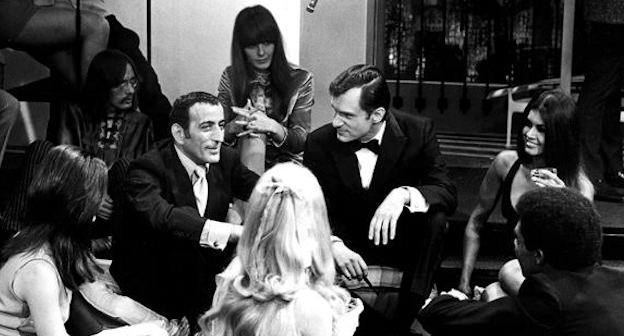
Hugh Hefner may best known for introducing an entire generation to the beauty of the female anatomy; but truth be told, one of the most lasting impressions and important impacts he made was contributions to music in America, as uncovered in Patty Farmer’s new book Playboy Swings: How Hugh Hefner and Playboy Changed the Face of Music. Offering insights into modern American history, the book explores the remarkable way Hugh Hefner’s efforts resulted in a legacy that continues to influence the American music and entertainment landscape.
For almost two decades, Playboy was the largest employer of entertainment including singers, musicians and comedians in the country. He supported and promoted jazz musicians from the very beginning in writing, on stage, and even with his own record label. His emphasis on musicians transcended racial divisions and opened up social dialogue and discourse in ground-breaking ways.
To celebrate Playboy’s fifth anniversary in 1959, Hefner produced the first Playboy Jazz Festival in Chicago. In the 40 worldwide Playboy Clubs, he showcased jazz musicians and provided black entertainers invaluable exposure in a defiance of segregationist laws and attitudes of the time. In 1962, Playboy published the first of the iconic Playboy interviews with Miles Davis (conducted by “Roots” author Alex Haley). Aretha Franklin also played piano and sang at the Chicago Playboy Club when just 18 years old, her first professional singing job outside of church.
Complied through interviews with hundreds of people who were on the scene throughout Playboy’s rise, fall, and on-going renaissance, Playboy Swings carries readers on a seductive journey through the musical history of the empire. Famer takes the reader from the inception of the Playboy empire through the 1959 jazz festival, to the opening of club after club paired with approximately 60 black and white photos and a complete Playboy music reference guide.











